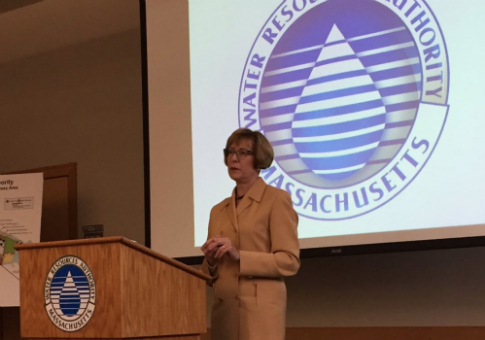The Massachusetts Sex Offender Registry Board does not have current addresses on file for nearly 1,800 sex offenders, according to an audit released Tuesday by state Auditor Suzanne M. Bump.
The audit found that the Massachusetts state registry failed to verify addresses with agencies in the state's executive branch, despite being required by law to do so, the Boston Globe reported Wednesday. The registry board also did not follow agreements with the departments of Revenue and Transitional Assistance to use their data to confirm addresses.
Sex offenders who are required to register with the board must update their registration information annually or be subject to fines, arrest, and possible imprisonment.
The audit period was from July 1, 2015 to June 30, 2016.
Deficiencies in the sex offender registry mean the public is missing vital info required by law https://t.co/dwzML3gWzW pic.twitter.com/efy37hN5Ey
— Suzanne M. Bump (@MassAuditor) September 27, 2017
Close to 1,000 of the 1,769 sex offenders with outdated addresses had not been classified by their likelihood to reoffend, the Globe noted. The audit found that 936 sex offenders were not classified by names, photographs, the crimes they were convicted of, and their likelihood to reoffend, depriving the public of access to that information.
"The failure to classify these 936 offenders means that members of the public had no way of determining if an individual who posed a significant risk of reoffending lived in their communities, nor did the public have access to critical information about these offenders, such as their names, photographs, registration status, and offenses, which the law requires be included in the registry," Bump's office said in a press release.
Of these 936 offenders, 237 are convicted of indecent assault and battery on a person aged 14 or older, 177 are convicted of indecent assault and battery on a child under 14 years of age, 143 are convicted of rape, and 129 are convicted of rape of a child with force.
SORB failed to classify 936 offenders putting public safety at risk our #audit found https://t.co/dr5cmSLBVE pic.twitter.com/hjfUNkEkee
— Suzanne M. Bump (@MassAuditor) September 27, 2017
Bump encouraged the registry board to use technology to assist in collecting sex offenders' data.
"When government commits to the taxpayers that it will provide a certain level of safety—and transparency—it has an obligation to do everything within its authority to meet that obligation," Bump said in a statement. "As technology and data collection continue to change and improve, our state agencies have an opportunity to utilize that change to break down the silos that have historically existed in government"
Our audit found SORB didn’t confirm sex offenders’ addresses despite data-sharing agreements w/ other state agencies https://t.co/Ik9oRyaOPm pic.twitter.com/6SWKLYHczA
— Suzanne M. Bump (@MassAuditor) September 27, 2017
"In this case, the sex offender registry is only as good as the information it contains, so without taking the steps to expand and use data-sharing agreements with other state agencies, it is not fulfilling its mission," Bump added.
A spokesman for the registry board, Felix Browne, defended the panel's progress, saying the audit did not include "critical facts" about court decisions related to the state's sex offender law.
"While we respectfully feel that this audit left out some critical facts about these courts decisions, we agree that this is an important public safety issue and will continue to work on it with the Legislature," Browne said in a statement to the Globe.
Brown also said the registry board has prioritized information sharing and brought on extra staff as they work with law enforcement "to keep our communities safe for the peace of mind" of state residents.
At the time of the audit, Massachusetts had 13,127 convicted sex offenders. Another 547 had been deported, 5,260 had moved out of the state, and 2,874 were incarcerated.
